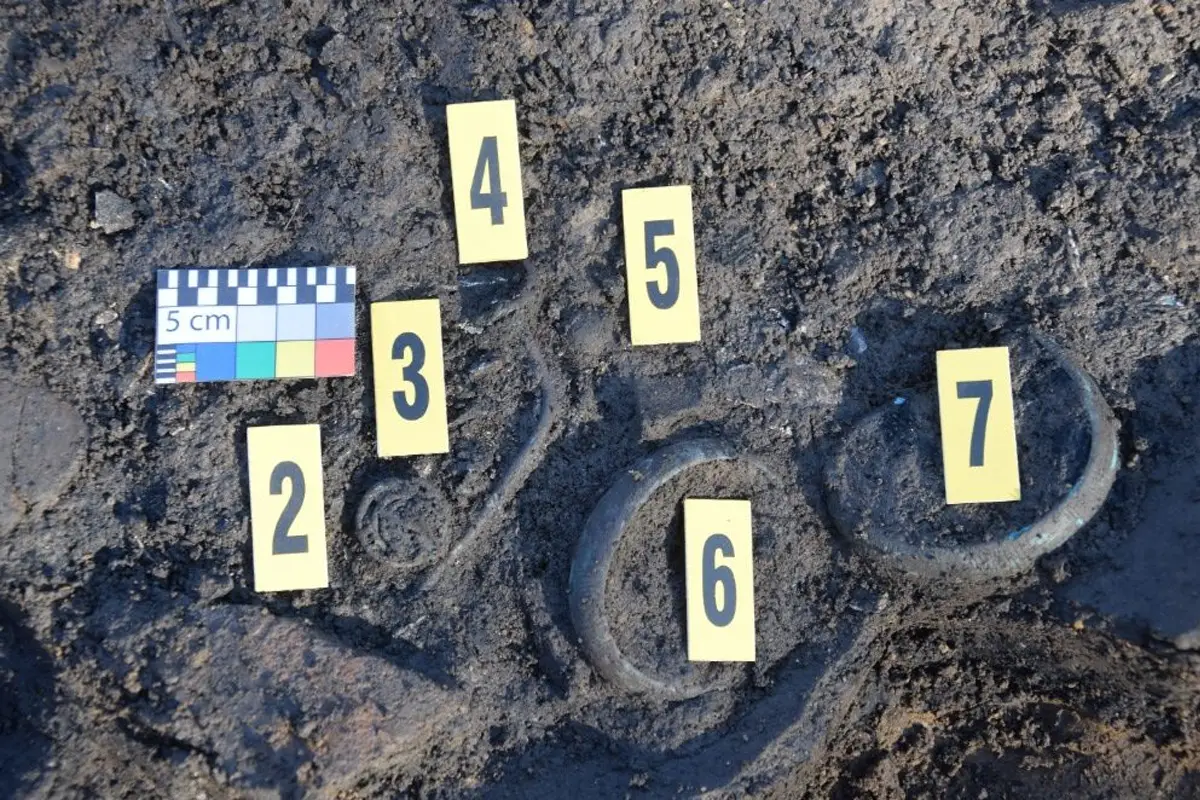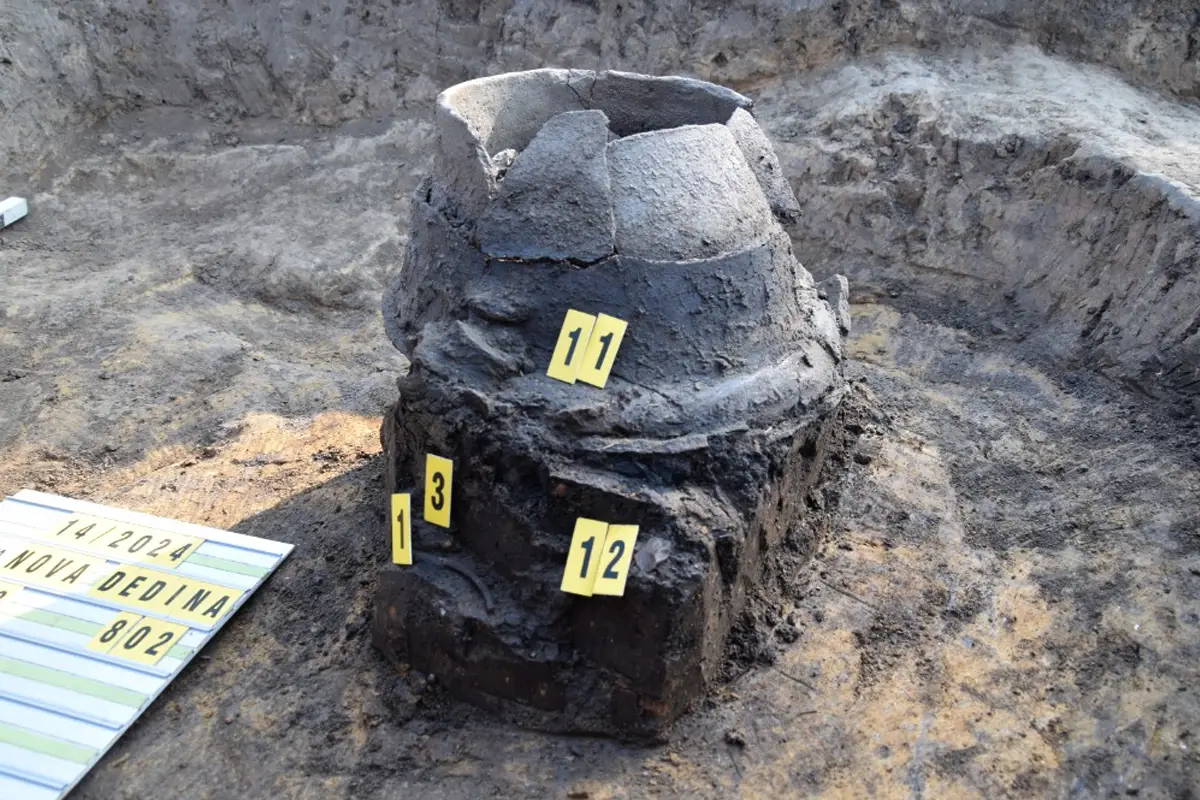Archaeologists from the Olomouc Archaeological Centre have uncovered an early Lusatian longhouse in Nová Dědina, a municipality and village in the Zlín Region of the Czech Republic.
The site is associated with the Lusatian Culture, a Bronze Age and early Iron Age people who inhabited what is now Poland, parts of the Czech Republic, Slovakia, eastern Germany, and western Ukraine.
The Lusatian Culture emerged around 1200 BC and is named for the Lusatia area in eastern Germany (Brandenburg and Saxony) and western Poland. They established an economy mainly based on arable agriculture, supplemented by hunting and gathering.
Recent excavations on an elevated area near the Oskava River have uncovered traces of a Lusatian longhouse in Nová Dědina. Longhouses served as a communal dwelling and were generally inhabited by large extended families.

The walls of the structure were constructed with wicker coated with clay, providing effective thermal insulation and communal shelter from the elements..
According to the archaeologists, the longhouse at Nová Dědina was likely the centre of a larger agricultural settlement, evidenced by numerous storage pits used to store crops and waste pits in the vicinity.
Marko Kalábek from the Olomouc Archaeological Centre, said: “Additionally, five cremation graves were found at the site dating back to the Late Bronze Age (1200 to 1000 BC).” The graves contained various funerary objects, including bronze pins, bracelets, rings, capped urns, and ceramic vessels.
“The cremation process was executed with precision. Despite some disturbance from deep ploughing, we were able to identify bone fragments confirming these as cremation graves,” explained anthropologist Lukáš Šín, who oversaw the transfer of remains to the Olomouc Archaeological Centre for further examination.
Header Image Credit : Olomouc Archaeological Centre
Sources : Olomouc Archaeological Centre





